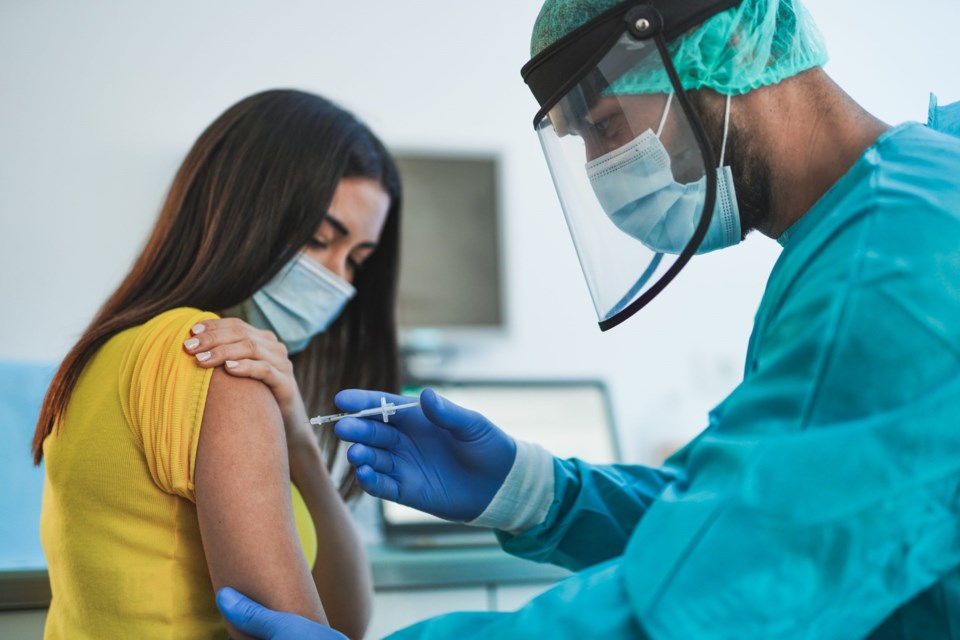On May 10, the FDA expanded emergency-use authorization for the Pfizer-BioNTech COVID-19 vaccine to include those 12-15 years old. But Texas parents haven't been rushing to get their kids vaccinated.
Many fear the vaccine and its effects. They worry that the vaccine will cause permanent damage to their children.
To address these concerns, Children’s Health held a virtual town hall Tuesday afternoon to explain why parents should vaccinate their kids, how the vaccine is safe and debunked some commonly circulated misinformation about the vaccine.
Is the Pfizer Vaccine Safe For Kids?
The short answer is yes, according to Dr. Jeffrey Kahn, chief of infectious diseases at Children’s Health and a professor at UT Southwestern. And one of the reasons it’s safe is because scientists have a lot of knowledge about how the vaccine works.
Rhetoric has widely circulated that researchers don’t know much about it since the vaccine technology is relatively new. But Dr. Kahn said this simply isn’t true. As of May 12, they have given approximately 141 million Pfizer vaccine doses in the U.S. to people aged 16 or older.
“So we have a wealth of information about this vaccine,” Kahn said.
Another crucial thing to note is that the vaccine is not infectious, and neither adults nor kids can get COVID-19 from the vaccine, Kahn said. The vaccine only contains one of the viral genes.
And while much discussion on social media platforms has centered around the COVID-19 vaccine causing infertility, Kahn said this is “blatantly untrue.” He noted that he started hearing rumors about the vaccine causing infertility back in January. But since the vaccine was approved in December, he emphasized that it’s impossible for anyone to know if the vaccine could cause infertility just a month later.
“I talk the talk, I walk the walk,” Kahn said. “I've got two daughters, ages almost 27 and 25. And I strongly encouraged them to get the vaccine. I'm not worried about this. I do want to become a grandfather one day... I certainly wouldn't recommend a vaccine that was linked to infertility to my daughters.”
Why Should Kids Get the Vaccine?
The most significant reason kids should get the vaccine is that, while they tend to be less affected by COVID-19, they still are. Dr. Kahn noted that as of May 20, more than 3.94 million kids have tested positive for COVID-19 since the pandemic started. Children also represent 14.1% of the total accumulated cases.
And even though it’s less likely for kids to become severely ill from the vaccine, it can and does happen. Kahn said over 16,000 children have been hospitalized due to COVID-19, which is more than are hospitalized during an average flu season. Further, over 300 kids have died of COVID-19, and COVID-19 is now among the top 10 causes of death in children in the U.S.
From a community health standpoint, getting your child the vaccine is also vital in bringing down case numbers. Kahn referred to multiple graphs showing COVID-19 case rates. At the national, state and Dallas County level, all showed an initial peak in April, a larger peak during the summer and the biggest peak in December and January. However, when looking at April 2021, all graphs show a sharp decline. Kahn said this is due to vaccination efforts.
Yet another reason why kids should get vaccinated is because of the COVID-19 variants that are starting to circulate. Kahn said it’s impossible to know whether the new variants may affect children more than the initial virus, but that they could. In Dallas County, for example, the COVID-19 variant B.1.617.2 is circulating — the same one circulating through India right now and wreaking havoc on the country.
“The point here is that when these variants enter a certain population, they can easily become the predominant variant in the population,” Kahn said.
Are There Any Risks for Kids?
Dr. Kahn said there really isn’t a risk for kids who get the vaccine. However, many people asked about whether the vaccine can cause myocarditis — heart inflammation. Various media reports have appeared over the last several days of myocarditis in children who received the Pfizer vaccine.
However, Kahn said the number of these cases is “actually very, very small.” He noted that researchers don’t even know if there is an association between the vaccine and myocarditis. Since there is already a baseline population of kids with low-level heart inflammation, Kahn said the real question is whether the number of cases has increased in those who got the vaccine.
But with the significant amount of doses already given, Kahn said it’s highly unlikely that developing myocarditis from the vaccine is a big issue.
“What's the risk of getting the vaccine versus the risk of getting COVID?” Kahn asked. “And when you think about that, the risk-benefit ratio of the vaccine far outweighs the risk of the vaccine.”
Where Can I Get My Kid the Vaccine?
It’s important to note that even if your child has had COVID-19, they still need to get vaccinated. Kahn said the COVID-19 vaccine is more effective than the natural immunity acquired from catching COVID-19.
Dr. Dawn Johnson, medical director of Children’s Health Pediatric Group, said at the town hall that Children’s Health began administering COVID-19 vaccines to kids 12 years and older on May 18. They are administering it at the Children’s Health Specialty Center Dallas and Specialty Center 1 on the Children’s Health Plano campus.
Additionally, Children’s Health will start offering appointments in some school districts via pop-up clinics throughout the DFW area, Johnson said.
To schedule a vaccine appointment with Children’s Health, click here.
Editor's note: Children Health advertises with Local Profile.




